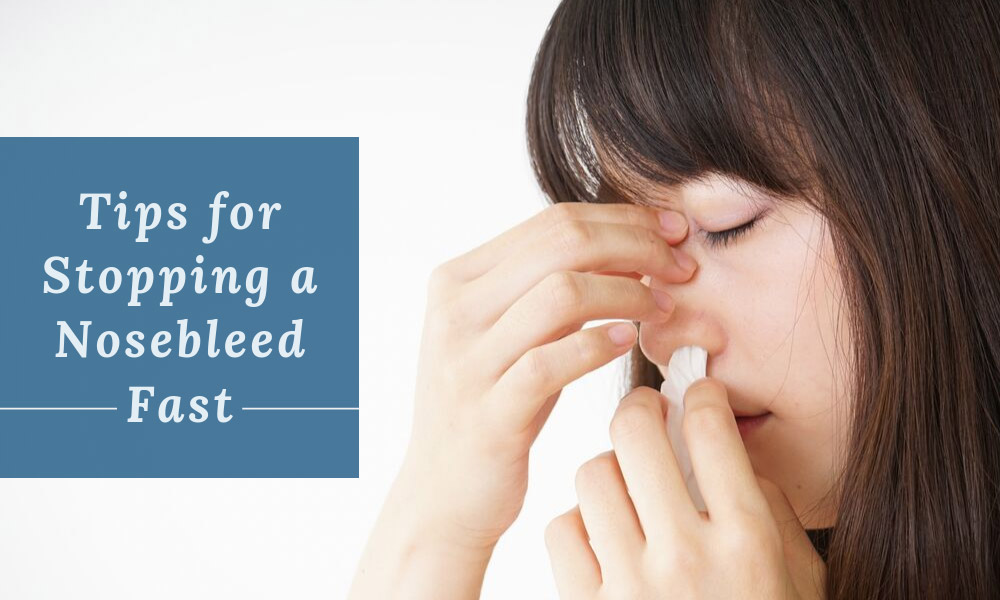Modern Design Useful Stop Nose - Nosebleeds can be an unpleasant and frightening experience. They can strike at any time and can be caused by a variety of factors, from colds and allergies to high blood pressure and injury. Regardless of the cause, there are steps you can take to stop a nosebleed and prevent it from happening again. Here are some useful tips and tricks to help you deal with nosebleeds:
How to Stop a Nosebleed
1. Pinch your nose
One of the most effective ways to stop a nosebleed is to simply pinch your nose shut. Use your thumb and index finger to apply pressure to the soft part of your nose, just below the bony bridge. Hold your nose shut for five to 10 minutes, gently releasing the pressure to check if the bleeding has stopped. Avoid blowing your nose or removing any clots or scabs, as this can restart the bleeding.

2. Lean forward
Another effective method for stopping a nosebleed is to lean slightly forward while pinching your nose. This will allow the blood to drain out of your nose and prevent it from flowing down the back of your throat, which can cause nausea and coughing. Remember to breathe through your mouth during this time to avoid inhaling any blood.

3. Use a cold compress
Applying a cold compress to your nose and cheeks can help to constrict your blood vessels and slow down the bleeding. You can use a bag of ice wrapped in a towel or a cold pack that has been stored in the freezer. Apply the compress to the bridge of your nose and hold it there for a few minutes at a time, alternating with periods of pinching your nose shut.

Tips for Preventing Nosebleeds
1. Stay hydrated
Dehydration can cause your nasal membranes to become dry and cracked, which can lead to nosebleeds. It's important to drink plenty of fluids, especially water, to keep your body hydrated and your nasal passages moist. Avoid consuming excessive amounts of alcohol or caffeine, as these substances can dehydrate your body.
2. Use a humidifier
Using a humidifier in your home can help to add moisture to the air and prevent your nasal membranes from drying out. This is especially important during the winter months when the air is usually drier. Be sure to clean your humidifier regularly to prevent the growth of bacteria and mold.
3. Avoid nose picking
Nose picking can cause trauma to the delicate blood vessels in your nose and lead to nosebleeds. Try to avoid picking your nose, and if you have an itch or irritation inside your nostril, use a tissue or saline spray to alleviate the discomfort.

When to Seek Medical Attention
Most nosebleeds can be treated at home without the need for medical attention. However, there are some situations when you should seek medical help:
- If the nosebleed lasts for more than 20 minutes, despite applying pressure and using a cold compress.
- If you experience frequent nosebleeds or have a medical condition, such as high blood pressure, that can increase your risk of nosebleeds.
- If you experience dizziness, fainting, or shortness of breath along with the nosebleed.
In these cases, it's important to seek medical attention as soon as possible. Your doctor can assess the severity of the nosebleed and provide appropriate treatment.
Conclusion
Nosebleeds can be a scary and uncomfortable experience, but they are often easy to treat at home. By using these tips and tricks, you can stop a nosebleed quickly and prevent it from happening again in the future. Remember to stay hydrated, use a humidifier, and avoid nose picking to reduce your risk of nosebleeds. If you experience frequent or severe nosebleeds, be sure to seek medical attention.
Read more articles about Modern Design Useful Stop Nose